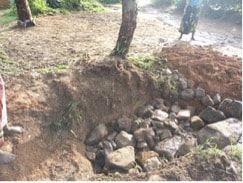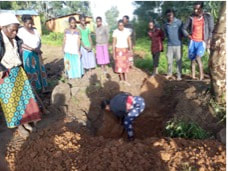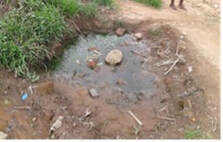Written by CorpsAfrica/Malawi Volunteer Ms. Mieke Mmeya
“Unless someone like you cares a whole awful lot, nothing is going to get better. It’s not.”
— The Once-lor, Dr Seuss’ The Lorax
Dear Reader,
Before I started my service, I never really understood why it was necessary for an organization to put individuals through the tedious process of applying, interviews and then going through intensive training just so they can become volunteers, after all I was dedicating my time and skills to work for free. Part of the pre-service training required trainee Volunteers to commute from a rural host community to a formal training venue for the duration of the training. I assumed that this was also unnecessary because I have lived my whole life in Malawi and I have spent holidays at my village as such, I did not need to be trained on how to live in a rural community. I am not too proud to admit that I was wrong.
Volunteering is indeed about caring enough to offer your time and skills to help others. However, that is only the first step. CorpsAfrica has taught me that not all help is necessary. There have been countless cases where individuals or organizations successfully implement projects whose impact diminish once the implementer leaves the project site. Studies have shown that this failure is largely influenced by communities not taking ownership of the projects mainly because they are alienated from the project planning and design. In the end, the projects are not tailor-made solutions for the communities.
CorpsAfrica understands that no two communities are the same and that it is only the community that can tell you what it needs. This is why all CorpsAfrica Volunteers are required to first and foremost integrate with their communities to discover which projects the community wants and the kind of assets that the community has in order to fulfil a particular project. The Volunteer acts as a facilitator and a bridge between the community and CorpsAfrica and other organizations that are willing to help, while the community takes an active role in project planning, implementation and evaluation. This approach not only allows the community to take ownership of the project hence ensuring sustainability, but also builds the capacity of the community to initiate community development projects without outside help.
So, my dear reader, whether you are planning to help an individual or a community, make sure you take your time to listen and familiarise yourself with them because most of the times people already know how they would like to be helped. All you need to do is to support them.



